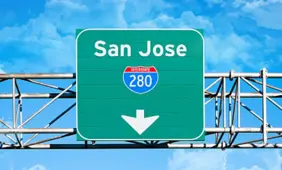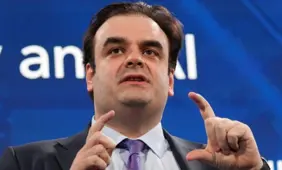Chicago Considers Following State's Example with Betting Tax Hike
City leaders in Chicago, IL, are weighing the possibility of introducing a new tax on online sports betting, a move that could generate significant revenue but has already drawn opposition from industry stakeholders. It follows the state's tax increase implemented just months ago.

The proposal was included in a report released in late August by the Chicago Financial Future Task Force, a group formed by Mayor Brandon Johnson to identify ways to address the city's projected $1.1 billion budget deficit. The task force recommended a 50-cent tax on every online sports wager placed within city limits, estimating that the measure could bring in an additional $17 million annually.
Related: Gov Pritzker Defends Sports Betting Tax Rise in Illinois as FairCurrently, Chicago imposes a tax only on sports wagering conducted at physical sportsbook facilities, which account for just 2% of betting activity. The task force highlighted that approximately 98% of sports bets in Illinois occur online, and those wagers are not presently subject to city taxation.
The proposal would follow a series of gambling tax measures already enacted at the state level. In July, Illinois implemented a per-bet tax on mobile wagers, requiring operators to pay between 25 and 50 cents per online bet placed.
This came on the heels of legislation passed in 2023 that raised the tax on sportsbook revenue, with operators now paying as much as 40% depending on earnings. These developments have created a complex tax environment for both operators and bettors in Illinois, and Chicago's proposal would add another layer to that system.
The Sports Betting Alliance (SBA) issued a warning on Wednesday about the potential consequences of Chicago's tax plan. The group emphasized that adding a 50-cent per-bet charge at the city level would stack directly on top of the state's existing per-bet tax.
According to the alliance, this could result in some wagers being subject to effective tax rates that equal or exceed the amount being bet. For example, a $1 wager placed within Chicago could carry a $1 total tax burden when both the state and city charges are combined.
More Regulation
Over-taxation Could Have Opposite Effect
The SBA also pointed out that operators are already passing on costs from the state tax to consumers in the form of transaction fees or higher minimum wagering thresholds. The group argued that layering a city-specific tax would further increase betting costs and likely discourage participation in the regulated market.
It noted that Illinois residents have expressed significant frustration with the state's per-bet tax, with more than 100,000 individuals contacting lawmakers to voice opposition since its implementation and many taking to social media to criticize the changes.
Despite industry objections, the financial results from the state's new tax may prove persuasive for city officials. The Illinois Gaming Board reported that the per-bet levy generated an additional $5.2 million in revenue for the state during its first month in effect.
For Chicago, which faces deep fiscal challenges, a local tax on online sports bets could appear to be a practical tool to address budget shortfalls. The city indicated that it isn't too concerned if it draws pushback from stakeholders.
The SBA, however, has raised concerns that excessive taxation could also undermine the state's legal sports betting framework by pushing consumers toward unregulated alternatives. The group said that more than half of sports wagers in Illinois are for $5 or less, making them especially sensitive to added costs.
It warned that the combination of city and state per-bet taxes could make offshore, illegal betting platforms more attractive because they offer cheaper wagers and fewer fees. Those platforms, unlike regulated operators, do not provide consumer protections such as age verification, responsible gambling measures, or regulatory oversight, and they also contribute no tax revenue.
Chicago's city council has yet to act on the task force's recommendation, and it remains unclear whether the proposal will advance.
RELATED TOPICS: Regulation
Most Read
Must Read
 Interviews
Interviews
Exclusive Interview: Levon Nikoghosyan Shares AffPapa Winning Formula for Successful iGaming Events
Dec 03, 2025 Interviews
Interviews






Review this New Post
Leave a Comment
User Comments
Comments for Chicago Considers Following State's Example with Betting Tax Hike